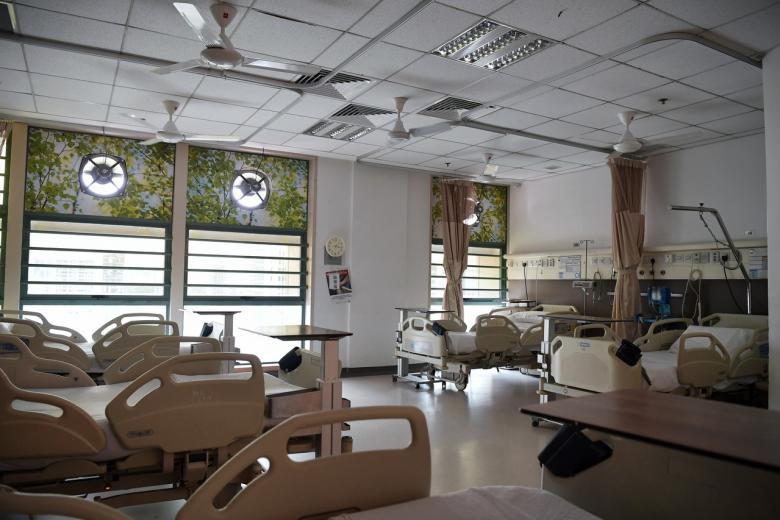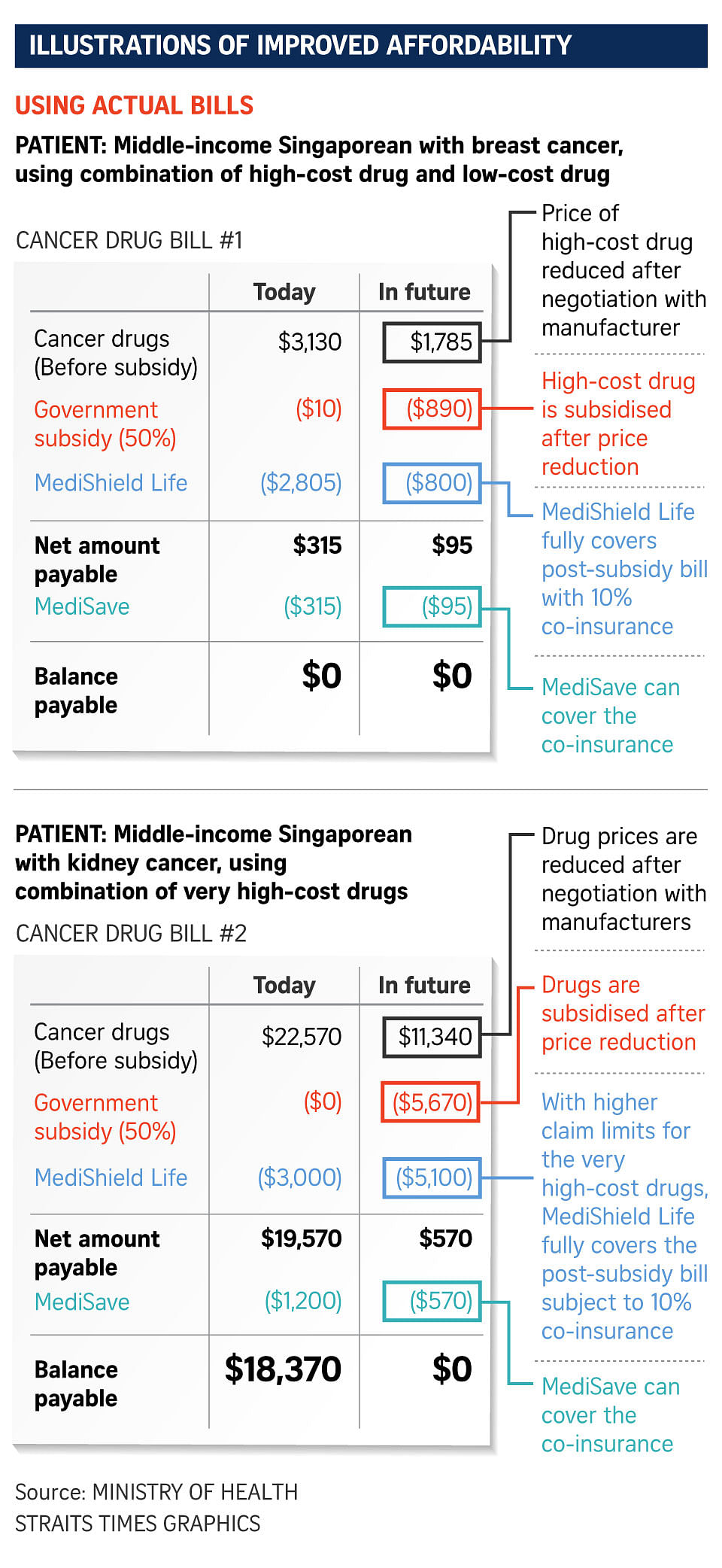MediShield Life coverage enhanced for cancer treatment; to cover drug bills of nearly 90% of subsidised patients
Sign up now: Get ST's newsletters delivered to your inbox

Among other things, the changes to MediShield Life will see claim limits for drugs on the Health Ministry's list range from between $200 and $9,600 a month.
PHOTO: ST FILE
SINGAPORE - More cancer patients here will get help paying for their outpatient treatments from next year when MediShield Life coverage changes from $3,000 a month to a range of $200 to $9,600 a month, based on the drugs used.
The Government will also subsidise more cancer treatments and raise the criteria from a per capita monthly income of $2,800 to $6,500 for subsidies under the Medication Assistance Fund for certain high cost drugs.
With these changes, 90 per cent of subsidised cancer patients will be able to have their outpatient treatments fully paid by insurance and MediSave from September next year - up from 70 per cent today.
The MediShield Life Council had set up a committee to look into the high cost of cancer care, and had recommended that the Ministry of Health (MOH) create a list of cost-effective outpatient cancer drug treatments to be covered by MediShield Life.
Patients undergoing private healthcare treatment covered by Integrated Shield Plans (IPs) will not be able to claim for drugs not on this list from April 2023.
However the new rules do not apply to riders, which about a third of IP policy holders have. Riders pay for part or all of a patient's share of the bill.
This is because IP premiums are paid with MediSave, while premiums for riders are paid for in cash.
IPs are health insurance plans offered by private insurers that incorporate additional benefits on top of MediShield Life's coverage.
The council had looked into claims for cancer treatments as these have fast outpaced claims for other medical treatments.
Spending on cancer drugs here has gone up at a compounded annual growth rate of 20 per cent, compared with 6 per cent for other drugs - and now accounts for 24 per cent of money spent on drugs here.
In 2019, $375 million was spent on cancer drugs alone, compared with $1.2 billion spent on all other medication, including for heart treatment, strokes and diabetes.
The MediShield Life Council said that if this trajectory continues, spending on cancer drugs alone would reach $2.7 billion by 2030.
There are several reasons for the high spending on cancer drugs. One is because more people here have been stricken, with numbers increasing by about 5 per cent a year.
Last year, 29,100 people claimed a total of $168 million against MediShield Life for outpatient cancer drug treatments.
Another reason is the high cost pharmaceutical companies have been charging Singapore for cancer drugs - in some cases, double what is charged for the same drug in Australia, New Zealand, South Korea and Taiwan.
Because MediShield Life reimburses $3,000 a month for cancer treatment, Singapore has had difficulty negotiating for lower drug prices as the drug companies know that insurance would pay even if they charge a higher price for a cheap drug.

The MOH said that by having differentiated cost limits and a list of clinically proven and cost-effective cancer drug treatments reflecting these limits, some pharmaceutical companies have lowered their prices so their drugs can be included.
Following such negotiations, cancer drug prices have gone down by about 30 per cent on average, the ministry said. It gave an example of a drug for kidney cancer that was reduced from $22,570 a month to $11,340.
This list of about 150 drugs is published on the MOH website and will be updated every four months.
Associate Professor Jeremy Lim from the National University of Singapore Saw Swee Hock School of Public Health pointed out that there are two elements, cost and effectiveness.
"So if the price is not right, effective treatments might fall off the list. It's then up to the manufacturer to decide whether it wants to lower prices to fit into the cost-effectiveness thresholds," he said.
MOH said about 90 per cent of the existing cancer drug treatments used in the public sector will be included in the list. Oncologists can request for an evaluation of drugs that are not on the list.
Mrs Fang Ai Lian, chairman of the MediShield Life Council, said: "Focusing MediShield Life coverage on clinically proven and cost-effective cancer drug treatments will enable Singapore to negotiate for better drug prices and improve affordability for more patients."
She added that this will help to keep MediShield Life premiums affordable for all Singaporeans. No revision of premiums is expected before the next review in 2024.



